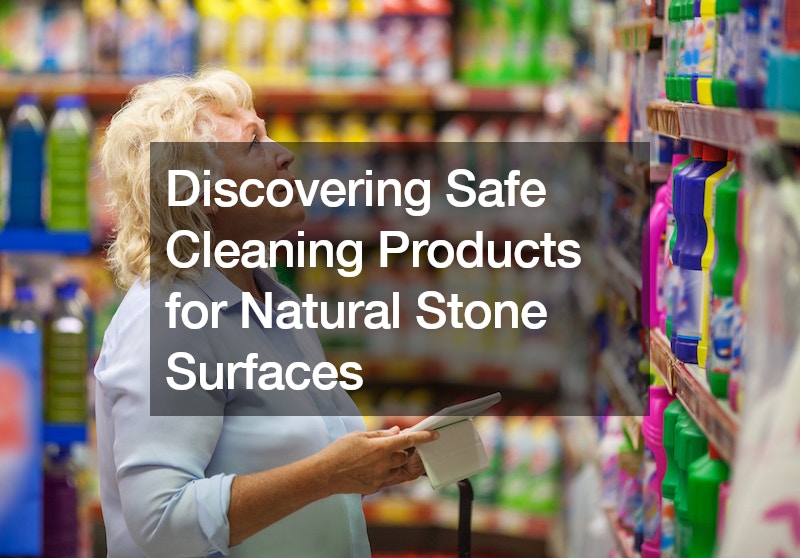Maintaining the pristine beauty of natural stone surfaces in our homes can be a challenging task. From marble countertops to limestone floors, these exquisite materials require delicate care to preserve their luster and longevity. However, with the plethora of cleaning products available on the market, it can be daunting to determine which ones are safe and effective for hardfloor cleaning.
In a quest to unravel this mystery, a series of experiments were conducted to evaluate the impact of common household cleaners on natural stone surfaces. The results shed light on which products are suitable for maintaining the beauty of these cherished materials and which ones should be avoided at all costs.
One of the primary considerations when choosing a cleaning product for natural stone is its acidity or alkalinity. Acidic cleaners, such as those containing citric acid, can cause etching and dulling of the stone surface. In contrast, alkaline cleaners, like bleach and ammonia, have minimal impact and can be used safely for hardfloor cleaning.
Among the tested products, those with citric acid-based formulations proved to be the most detrimental to natural stone surfaces. These cleaners, often marketed as “eco-friendly” or “all-natural,” can leave behind stubborn etch marks that require professional restoration to repair. Thus, homeowners should exercise caution when selecting cleaning products labeled as “plant-based” or “natural,” as they may still contain ingredients that are harmful to stone surfaces.
Conversely, products like bleach and ammonia, known for their strong alkaline properties, were found to be safe for use on natural stone. Despite common misconceptions about the potential damage they may cause, these cleaners can be applied directly to stone surfaces without adverse effects. However, it is essential to use them sparingly and follow proper dilution guidelines to prevent any potential issues.
In addition to household cleaners, specialty tile soaps specifically formulated for hardfloor cleaning were also put to the test. These products, available at home improvement stores like Home Depot and Lowe’s, are designed to clean and maintain various types of tile, including natural stone. While some tile soaps produced satisfactory results, others proved to be ineffective or even damaging to certain stone surfaces.
One surprising finding was the safety of Mr. Clean Magic Eraser on natural stone. Despite its abrasive texture and formidable reputation for removing tough stains, this product did not cause any visible damage to the stone surfaces tested. This revelation opens up new possibilities for homeowners seeking effective stain removal solutions for their natural stone countertops and floors.
Ultimately, the experiments yielded valuable insights into selecting safe cleaning products for natural stone surfaces. Products labeled as “tile-specific” or “for hardfloor cleaning” from reputable brands like TileLab and Aqua Mix were deemed the safest choices. These cleaners are formulated to effectively remove dirt and grime without compromising the integrity of the stone.
Hard floors can indeed be sensitive to certain chemicals, depending on the material they’re made of. Here’s a breakdown of common hard floor types and their sensitivities:
Hardwood: Hardwood floors can be sensitive to harsh chemicals, as they can damage the finish or the wood itself. Avoid using ammonia-based cleaners, wax-based products, or anything acidic like vinegar, as they can dull the finish or cause discoloration. Instead, opt for pH-neutral cleaners specifically formulated for hardwood floors.
Laminate: Laminate floors are generally more durable than hardwood but can still be sensitive to certain chemicals. Avoid using abrasive cleaners, as they can scratch the surface. Also, be cautious with excessive water, as it can seep into the seams and cause warping or swelling.
Vinyl: Vinyl floors are resistant to moisture and relatively low-maintenance. However, they can be sensitive to certain chemicals like solvents, which can cause discoloration or damage to the surface. Stick to mild cleaners specifically designed for vinyl floors.
Tile: Tile floors, whether ceramic or porcelain, are typically less sensitive to chemicals due to their durable nature. However, some types of tile and grout can be porous and absorbent, making them susceptible to staining from harsh chemicals. Avoid using bleach or ammonia-based cleaners on grout, as they can break down the grout and cause it to deteriorate over time. Instead, use a pH-neutral cleaner or a mixture of baking soda and water for gentle yet effective cleaning.
In conclusion, maintaining the beauty of natural stone surfaces requires careful consideration when choosing cleaning products. While some products may promise eco-friendliness or all-natural ingredients, their acidic formulations can wreak havoc on stone surfaces. Conversely, alkaline cleaners like bleach and ammonia offer a safe and effective solution for hardfloor cleaning.
By arming themselves with knowledge about the impact of different cleaning products, homeowners can ensure the longevity and beauty of their natural stone surfaces for years to come. Whether it’s marble, travertine, limestone, or slate, selecting the right cleaning products is essential for preserving the timeless elegance of these beloved materials.
.


